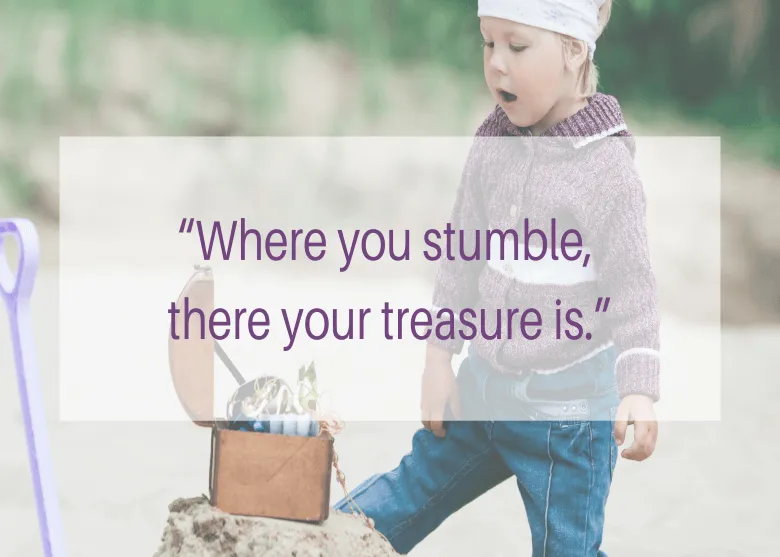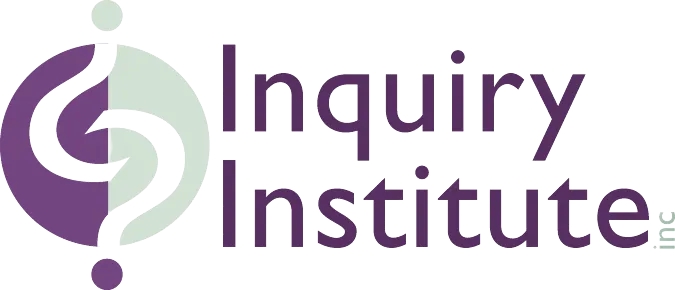Blog

Where You Stumble, There Your Treasure Is
Many of the biggest advances in my life began with so-called failures, which usually hurt at the time. Even learning to walk, for all of us, began with falling down and getting back up until we didn’t fall any more. Most memorable literature follows an arc that begins with failure, upset, or breakdown—followed by perseverance and hard lessons—and ultimately success. This is fully human, which is also why it’s usually the mythic arc. That’s why I began Change Your Questions, Change Your Life with the main character, Ben, being so devastated by his failures at work that he was about to quit the job of his dreams. Later in the book, Ben’s coach quotes Joseph Campbell to him, “Where you stumble, there your treasure is.”
Most of us operate with the unexamined (and Judger mindset) assumption that failure is bad, as if it should never happen. Not only is this impossible and utterly unrealistic, it also means we’d never learn anything. It’s like saying that you should already know something before you ever learn it. I finally figured this out after spending a year in a training program being angry with myself because I didn’t already know everything the teacher did. Then, in the last class, I had a light bulb moment and was able to laugh at myself with the recognition that that was why I was in the class in the first place! In retrospect, this is blindingly obvious, but it sure wasn’t as I suffered my way through that whole year of classes.
Imagine how life would be if we could (from Learner mindset) assess any mistake or failure as simply data that informs what to do next. That way, rather than being a wall that blocks success, failure would become a bridge to the next possibility. Conceiving of failure this way provides fertile soil for something great to grow. Failure, considered as a critical unchangeable judgment, poisons the ground so nothing can flourish. In fact, many of the most transformational inventions were byproducts of failures of something else altogether. As F. Scott Fitzgerald said: “never confuse a single defeat with a final defeat.”
Imagine how life would be if we could (from Learner mindset) assess any mistake or failure as simply data that informs what to do next. That way, rather than being a wall that blocks success, failure would become a bridge to the next possibility. Conceiving of failure this way provides fertile soil for something great to grow. Failure, considered as a critical unchangeable judgment, poisons the soil so nothing can flourish. In fact, many of the most transformational inventions were byproducts of failures of something else altogether. As F. Scott Fitzgerald said: “never confuse a single defeat with a final defeat.”
One thing that makes failure such a painful experience is that most of us don’t usually distinguish between something we attempted that failed and who we are as a human being. Then, we label ourselves as “a failure,” which often becomes a self-fulfilling prophecy. What a wonderful difference it would make if we were to change our response to having failed at something from, “Why am I such a failure?” to “What can I learn from this failure so I can be more successful and satisfied next time?” or even “What’s the treasure waiting to be discovered in this failure or mistake?”
Learn more about Learner and Judger mindset in the book Change Your Questions, Change Your Life: 12 Powerful Tools for Leadership, Coaching, and Life.

Learn More

